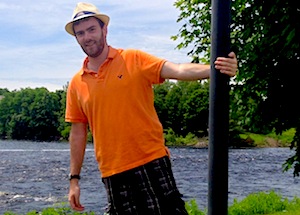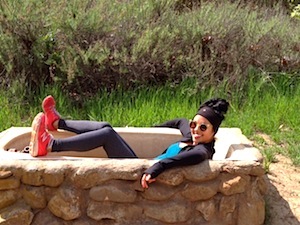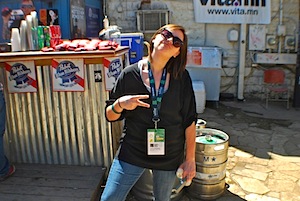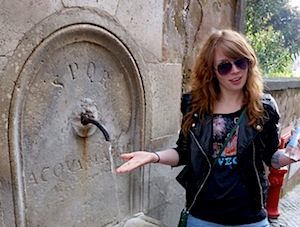Current music industry students and recent grads have been learning that internships are essential for success in their field. Music industry internships offer the connections and on-the-job training that can’t be found in the classroom. While they may or may not result in direct job offers, internships in music industry definitely open doors to opportunities that would otherwise not exist.
• • •
We invited 6 recent interns to share key insights they’ve learned through music industry internships. Their wisdom is worth paying close attention to. Most, by the way, received college credit for their internships but no financial reimbursement.
Q: Why are music industry internships essential?
Nick Alexander: Internships are really what test your mettle. It is great to learn about the music business but being able to take what you learn in class and apply it outside the classroom is where you’re really going to find out if you know as much as you think you do.
Kevin Brady: They offer countless opportunities to collaborate, share ideas with others, as well as learn and practice new skills, and refine current skills. They also offer great networking opportunities. As long as you work hard and make a good impression, that letter of reference could be quite helpful!
Maddie Casey: It’s really hard to break into the music industry field without internships, because of how specific this field of work is. You can read books and take classes and watch videos, but until you’re actually doing it, it’s hard to get a firm grasp on exactly how any of this works. Not to mention how quickly changing it is…You have to be on the front lines to keep up with the times, or you’ll get behind before you can even start. Plus, the easiest way to gain the experience necessary to compete for “introductory” or “entry-level” positions is through internships.
Maura Duval: They are the only way to secure a post-college future.
Lauren McCauley: Without an internship, I honestly think it would be almost next to impossible to get a job and meet people.
Alex Wright: The experience of working with a mentor is really the best way to learn about any industry, but especially with one as competitive as the music industry. Also, the more time you spend working in a professional environment, with professional people, the better geared you are yourself to become one of those professional people. It’s impossible to be surrounded by people who are really good at what they do and not absorb the energy that it takes to maintain that.
Q: What did you learn that you’re taking into your professional life in music?
Nick Alexander: l learned about how important organization is and how always paying attention is crucial to success because the little things have a tendency to become bigger problems if they are left unattended.
Kevin Brady: The opportunity to sit in on meetings has given me my first look at how a business really works (not just “in theory” in a classroom). I have also already done some research and had the opportunity to share these findings and collaborate with others in the office. I have learned to think more about the impact of decisions.
Also important – I have gotten to practice and refine my writing skills through interviews, press releases and various other projects.
Maddie Casey: My professional aspirations are to continue to work with bands, and being able to do so in a setting where the pressure was not entirely on me gave me the chance to learn in a safe environment, while still being really immersed in the actual culture and workforce. Working with a smaller, independent band gives you the ability to learn a lot about different topics.
I don’t play instruments, but I learned a lot about gear most musicians frequently use, by helping the band load their gear in and out, and helping them set up on stage. I don’t have training in social media, but by working with our social media team, I learned what it takes to keep things consistent on multiple platforms, as well as what is and is not important to a band’s success.
I learned how to be a successful merch seller and keep track of the merch, I learned what is expected of a tour manager, and I even learned some things about what a venue does to prepare for shows. It’s all very hands on, and all things that will carry me forward.
Maura Duval: I learned how business relationships are built and maintained and how to work with an array of difficult personalities and egos. I learned patience and organizational skills — never, never underestimate the power of organization; it can make or brake you.
I also learned how important it is to be able to “put out fires,” stay calm in tense situations, plan ahead for disaster, and how to get people really excited about things that are in actuality, not exciting at all. Sales skills are also important to take away because at the end of the day, we are all selling something whether we like to think of it that way or not.
Lauren McCauley: It is very important to put in the extra work (ex: getting there early and staying late). Also, it’s important to open yourself up to people within the company. Ask smart questions, go to shows, ask your mentor out for coffee, be available, and smile!
Alex Wright: I’m a singer-songwriter at heart so seeing the behind the scenes of artist management and learning what it takes to do it successfully is huge for me in navigating my future career in music. This is especially the case when it comes to social media management.
Q: Suggestions for figuring out where to intern?
Nick Alexander: Intern at a place you actually care about. If you are a fan of punk music, don’t intern with a top 40 radio station because you’re probably going to hate it and just leave with a bad taste in your mouth. I learned to treat an internship like a job, to show up on time and always be willing to stay after because that is going to set you ahead of the pack.
Kevin Brady: Consider the company and the people you may be working with. Are they reputable and well-connected?
Consider the location and the opportunities it offers. Though you might not want to move away, you might have a better internship experience and better networking opportunities from a bigger and/or more reputable company in a city or just away from home.
Maddie Casey: How much of your own time can you feasibly dedicate to this internship? Most internships are not paid, which makes it difficult sometimes to allocate a lot of time to them. But if the internship is in your specific field, or will give you access to experience in something important to you, then pursue it at all costs.
Maura Duval: Make sure you’re not the intern that gets stuffed into a closet with a million envelopes to lick and seal, never to see the light of day again. A good company and supervisor will make sure you are learning and set up for success; a good set up will put you in a place where you can ask questions, spend time in a variety of departments, and meet lots of people.
Never be afraid to ask to do more. Show interest in meaningful projects and don’t be afraid to ask “Why?” a lot. Do not be the closet intern and if you ever find yourself getting shoved anywhere near one, get out!
Lauren McCauley: Make sure it’s something you are genuinely interested in and want to do. You work a lot of hours and usually without pay, so the joy of doing it is sometimes the only way to get you through.
Alex Wright: Pay attention to why you want the internships you want. The “take what you can get” approach might land you in a position where you’re stuck working for people you may not even like, doing a job you don’t care about, and getting experience in something that isn’t useful to you.
Q: What do you wish you knew before becoming an intern?
Kevin Brady: I discovered there is always going to be a learning curve regardless of how prepared you really are. Also, I wish I had taken more business classes. I feel like it would have made me feel a little more comfortable actually working at a business.
Maddie Casey: I wish that I really, really understood what a huge time commitment it is to be in a band or work for a band.
Maura Duval: I now know that the relationships I built from each internship were probably just as valuable, if not more valuable, than the actual work I did. The learning experiences were great but in retrospect, I could have devoted a little more of my time to meeting new people around the office and during office social outings.
Lauren McCauley: I’d tell myself not to be afraid to ask more questions and talk even more with people. A lot of an internship is not just learning the skills necessary to do a job, but how to engage and connect with others already in the industry.
Alex Wright: I wish I knew how much of an advantage it is being proficient with computers and technology in general. Proficiency with technology is an asset. If you’re not using shortcuts, hot keys, etc., you should start learning because someone faster and more knowledgable that you is out there and looking for the same job. If I didn’t have these skills I would surely be unable to work at my current internship; we do EVERYTHING digitally.
Q: Music industry internships: takeaways?
Nick Alexander: I am learning how a smaller independent label works as well as how to make a living in the DIY music ecosystem.
Kevin Brady: Making connections. You never know when those connections might come in handy.
Maddie Casey: I could feel out my career goals and aspirations, begin to build a network of helpful and involved people who are already working in my desired field, and experience endless networking opportunities. Every show, every day, each task I did allowed me to shake hands and meet one other person who was somehow involved with my band. I built a great rapport with the people I was working with directly – the band, their manager, booking agent, etc., and hopefully those contacts who have seen my work ethic first-hand will be able to help me land another internship or future job based on our past work experience together. ”
Maura Duval: Connections that have led to all of the other internships and jobs that I have managed to get.
Lauren McCauley: Everyone I talked to was always more than willing to offer advice and definitely words of encouragement.
Alex Wright: Making connections. I’m also learning a lot about booking and hopefully I’ll be doing some stuff with touring soon.








Leave a Reply